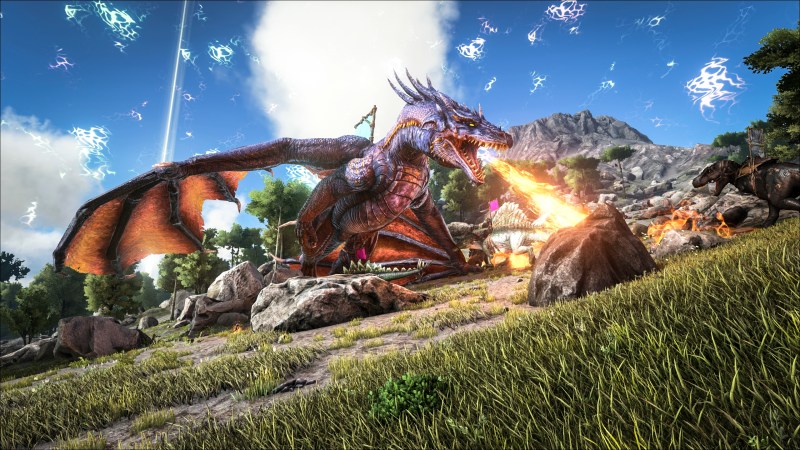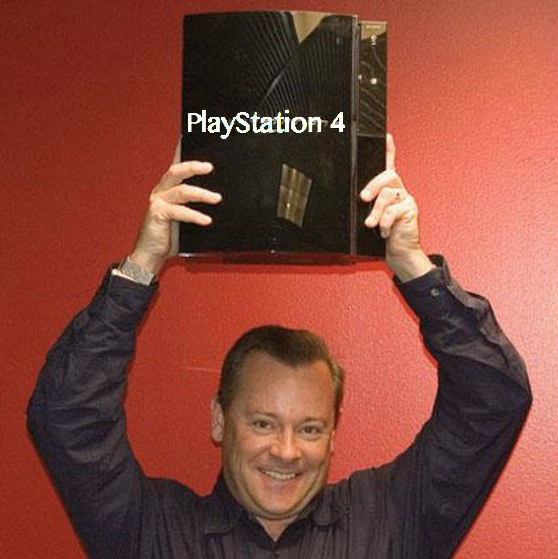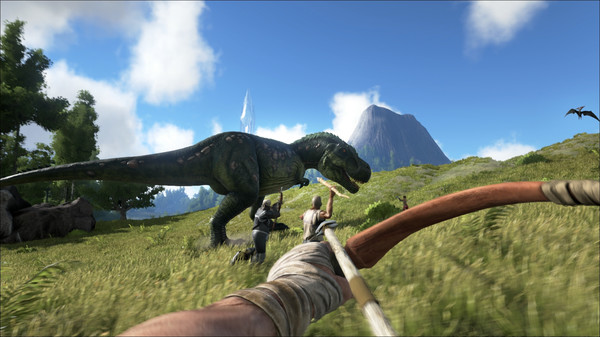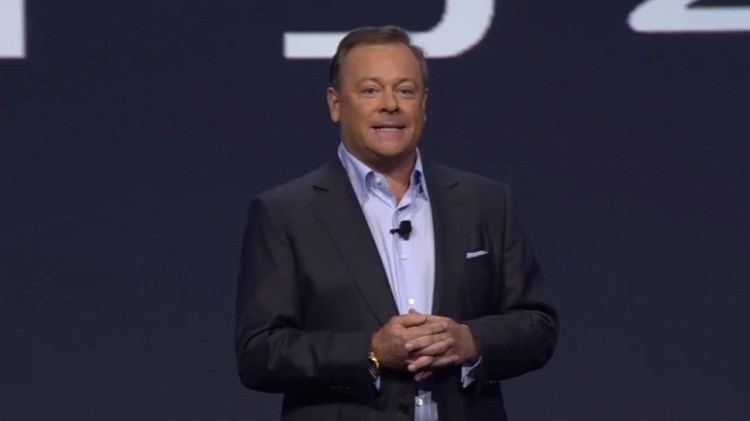testsetset
Last week, former Sony U.S. games chief Jack Tretton announced he had started a new venture capital fund, Interactive Gaming Ventures, to invest money in promising indie developers.
That means the world looks different to Tretton now. After spending 28 years — mostly at Sony’s PlayStation business — in the games business, he stepped down in 2014 as the PlayStation 4 was on its way to winning the console wars. The PlayStation was his world.
But now he can take a less partisan view of the game platforms, from Microsoft and Nintendo to relative newcomers such as Apple, Google, and Amazon. He plans to invest $1 million to $5 million in a few indie game developers per year, and he hopes that they will thrive on multiple game platforms. I talked to him about his views on these companies last week in an interview.
“I saw potential but didn’t see the passion and commitment and resolve that you need to go all in with games,” Tretton said. “With Microsoft they had growing pains, but I never questioned their commitment to games. There is never a question in my mind that Apple, Google, and Amazon could be phenomenally successful if they were committed to it. Gaming culture is very unique. If they try to run it like other parts of their business, they could struggle.”
Tretton is worried that big companies can’t take as many risks anymore on big-bet games, resulting in less creativity at the high end of games. And Tretton hopes that indies can fill the gap.
Here’s an edited transcript of our interview.

Above: Jack Tretton is managing partner of Interactive Gaming Ventures.
Jack Tretton: I got to a stage in my career, after 28 years on the corporate side—I loved my time there, but when you’re part of a big company, the positive side is you have a lot of resources and a lot of allies you work with, and the negative side is you’re an employee. You have to subscribe to every theory your company subscribes to, whether you believe it or not. I longed for an opportunity to apply what I had learned on the corporate side, but go independent and pick my partners and find those organic relationships. I wanted to work with people who saw value in what I could bring to the table.
I’ve been doing that for four years now. I’ve done a lot of work with the bigger publishers, helping them with M&A work and general industry advice, finding potential studios and projects to acquire. I’ve worked a lot with the financial analyst community, helping them with research on various companies in the industry in general. I spent a lot of time with indie developers, either through M&A situations where they were looking to raise money or sell a project or sell their studio, or just providing general introductions and management advice.
I’ve developed a passion for working with young development teams, people with a lot of talent, but who don’t have the years of experience in the industry or a lot of experience with go-to-market strategies. The great thing about the digital world and the indie space is that you can go direct to the consumer. You don’t have to worry about Wal-Mart and GameStop. You don’t need the financial infrastructure. If you build a game with good gameplay and consumer appeal, you can have some success.
One of the challenges I’ve found that they universally face is raising money. We have a $100 billion industry, but most of the venture community and the private equity guys shy away from it, especially investing in small indie projects. I formed a fund with some partners about two years ago, called Ocean IQ Gaming, and we invested in a studio up in Toronto called Blue Isle Studios. That led us to consider and get a placement agent and get bankers involved to go out to the PE and VC community and really pitch them on raising a fund.
What I realized in that experience is there’s a lot of resistance to investing in industries that they’re not in and that they don’t understand. Raising a fund of size is going to require me to spend a lot of my time on administrative functions and investor relations, and less time dealing with the investments and the studios and the games, which is really where my passion lies. We ended up with a fund that’s going to allow us to invest in two to three games a year, and not only provide financial infrastructure for them, but also really immerse ourselves in the development teams and try to give them some of the corporate relationships we may have that they lack, and some of the go-to-market strategies that they don’t have experience with.
The type of studio we’re targeting is not necessarily somebody who’s creating their first game, but somebody who has put out one, two, three projects. They’ve had commercial success. It’s financially viable. But they’re looking for that additional partnership, both financially and management-wise, to take them to the next level. We’re targeting teams that look to bring out PC projects first, in early access, and then ultimately bring them to console, and if and where it makes sense, ultimately over to mobile. But it’s going to be PC-based early access developers that will then publish digitally on console.

Above: Interactive Gaming Ventures logo
GamesBeat: Are you putting a number on the fund? Some people will say it’s a $10 million fund or whatever.
Tretton: I can give you a number, but I’m trying to avoid branding the fund. The first thing people do is say, “Yeah, right.” But the simple math is, number one, as long as they’re projects that all the partners have agreed to greenlight, we have no limit on funds. It’s just a matter of how many projects we feel are viable and that we can handle. We’re targeting two to three a year, with investments in the $1-5 million range. We’re going to do a seven-year fund. If you do the simple math on that, at the low end it would be in the $35 million range, and at the high end it could be as high as $100 million. But I’d rather talk about the scope of it than the dollars.
GamesBeat: How many partners do you have as part of the investing?
Tretton: On the management side it’s just myself and my partner Doug Kennedy. The other partners are really just investors. They’re going to provide the financial backing, and they’ll certainly be involved in the project approval process, but they won’t be involved in the day to day management and relationships with the studios.
The good news is, they’re certainly very familiar with the industry. That was one of the challenges and frustrations in going out to the financial community at large. They want to understand the game industry in 30 minutes and that’s just not possible. It helps to have people that understand publishing and how the industry works. We have a perfect marriage in that regard, with everybody involved being from the industry.
GamesBeat: What was Doug’s background again?
Tretton: Doug worked at Nvidia. That’s when I met him, about 20 years ago. Prior to that he worked on the promotional side with partners like GMR on Sony’s business, and also Microsoft’s business. He had his greatest success creating a publishing studio and marketing services firm, initially for guys that were putting stuff out on the iPhone. After starting his own studio, he worked with the guys from RedOctane on the original Guitar Hero, and worked with Harmonix on Rock Band as well. He transitioned very quickly over to the indie space and was one of the pioneers there.
His background is very much on the entrepreneurial, indie side, and of course my background is more corporate, the big publisher side. It’s a nice marriage. He knows all the guys at id@Xbox, key players in publishing at all the consoles, key players in the indie space. I have a good relationship with the senior management. We work it from both sides. It makes for a good partnership where we both bring different skill sets to the table.
He’s currently CEO of Studio Wildcard, the makers of Ark: Survival Evolved. I’ve been working with that team for three years as well, in a consulting role.
GamesBeat: Since you left Sony, what would you say has been a hit for you? Is Ark something where you can say you saw it early on and it turned into a big hit? Or are there other titles you’ve worked with?
Tretton: The things I’m most proud of, where I feel like I’ve made a significant contribution, where I certainly enjoyed great financial rewards—definitely, first and foremost is Ark. I got involved with the team just before they were going into early access. They were looking to raise development funds and get help with a go-to-market strategy. I came on board in a consulting role as the chief strategy officer. We had a great deal of success, both in raising money and ultimately selling the title. We did 13 million units, and we just took it to physical retail in August 2017. It’s done more than 1.1 million units worldwide. I helped put that organization together for them. That’s worked out very well, and it’s been a real source of pleasure for me.

Above: Ark isn’t just about dinosaurs anymore.
The fund we created, Ocean IQ Games, that invested in Blue Isle Studios, has worked out really well. We have a piece of their three games — Slender: The Arrival, Valley, and a game that’s currently out in early access and was our primary investment, Citadel. That fund paid back all the investors within the first year. The first two games that were already on the market generated good revenue, and the third game did extremely well in early access. All the investors recouped their investment. The studio is happy. We’re working hard to bring the final version of Citadel to market late this summer.
Those are probably the two experiences I’ve enjoyed the most. But it’s a very different experience when you go out on your own. The good news is, you have total freedom. The bad news is, you start from zero. You print up your own business cards. You pay all your own expenses. I certainly think I have a good reputation in the industry, but I’m no longer Jack from Sony. I’m just Jack. You have to go out there and farm those relationships and find those strategic partnerships.
I’ve enjoyed it. I wouldn’t go back. I certainly enjoyed the 28 years on the corporate side, but this is definitely what I was meant to do now. I’ve always been passionate about the industry. Everyone wants to make money, but I like contributing to success. I’ve always gotten the greatest amount of satisfaction from happy gamers and from people who create great games, games we remember years down the road. Now that’s predominantly what I spend my time doing.
GamesBeat: How do you look back on Sony? It’s interesting to me that the whole group of people I met in the ‘90s there is gone now. Phil Spencer, Kaz Hirai, Andrew House, you.
Tretton: I went into it with fairly conservative expectations. Or I guess extremely conservative at first. I figured I would put in three years there and, if all went well, it’d be a positive experience. The three-year plan became five years, and then five years became seven. I certainly enjoyed it. I think in any industry and in any company, you get a fairly significant amount of turnover. To be involved in that company for four generations of hardware is something I’m proud of. It exceeded my expectations.
But I certainly got to a point after PlayStation 4—I said, “Okay, what is left for me to do? What more can I accomplish? What more can I personally garner from the company?” I had no intention of moving to Japan. I felt like I’d contributed and gotten as much out of them as I wanted. I felt like it was time to move to something that I had as much if not more passion for. It made sense for me.

Above: Jack Tretton holds a PS4 on the day it was introduced in 2013.
I don’t really know what the rest of the team’s thought process and strategy was, but I thought it was pretty ironic—we had very minimal turnover until I left. Now it’s just short of four years now, and I have trouble finding anybody involved in senior management that I worked with over those 19 years. There’s been a tremendous amount of turnover in the last four years. I’d like to think, if I was first out the door, then I saw the writing on the wall. I don’t think anything negative is going on there. But you just burn out in terms of what you have to contribute and what’s there for you.
I love to just be a supporter of Sony from the outside. The biggest takeaway for me, I had to be all Sony, all the time. Everybody else on the hardware side, for lack of a better word, was the competition. But I’ve really enjoyed working with the Microsoft team in particular for these last four years. I haven’t had much involvement with Nintendo, but now, with Switch being a big success, there’s a great deal of interest at a lot of the developers I’m working with. I really enjoyed Nintendo in the old days. I haven’t worked with them since the mid-‘90s, but I’m anxious to start working with those guys again.
GamesBeat: I had a chance to catch up with Phil last year. I put that same question to him – “What do you think of Sony, Microsoft, and Nintendo now that you’re on the outside? What do you think of the new guys like Google and Amazon?” There’s this accidental games business that the new guys have built. Apple doesn’t care about games directly, but games are huge on their platform. It’s funny that Phil winds up at Google, too.
Tretton: It is. I had an opportunity to have a one-on-one meeting with Jeff Bezos. He reached out to me just after I left Sony. I really enjoyed that. I’ve certainly spoken to Google and Apple as well. They’ve always had the potential to be major players, but I didn’t see the passion at the commitment at the points when I spoke to them, what I feel you really need to have.
There was no question, when I joined Sony, that they were in it to win. They were investing the resources and they had the know-how to be successful. Microsoft was always committed. They had to go through some growing pains because they do things uniquely, but I never questioned their commitment. To be successful in this industry, you have to be committed.
There’s never been any question in my mind that Apple, Amazon, or Google, types of companies like those, could be phenomenally successful if they committed to it. But you know better than anybody that gaming culture is unique. It’s unlike any other business. If they try to run it like other parts of their business, they’re going to struggle. The keys to success at Sony and Microsoft—they’ve kind of been islands off the corporate coast. They’re not running Xbox the way they’d run Windows. That’s a lot of the reason why they’ve been so successful.
It’ll be interesting to see how that culture and that commitment evolves at companies like Google. I did hear about Phil’s appointment. I certainly wish him a lot of luck.
GamesBeat: Do you enjoy playing more of these indie games nowadays, compared to all the triple-A stuff in the past?
Tretton: There were so many games I had to be involved in that I couldn’t physically play them all, even if I had the passion. I felt like, if I wasn’t at least aware and spending time – watching, if not playing – with all the top games—now, because I’m able to pick my partners, I certainly stay on top of the data related to the top-selling games. But again, I gravitate toward the stuff I enjoy playing, and gravitate toward the people I’m working for directly. I really enjoy it.
I’ve never been all about graphics. I’ve always been about immersiveness in gameplay. That’s what I love about the indie games, and what I really love about what Nintendo’s always done, and what they’ve done with Switch. It’s an incredibly entertaining experience. The graphics are secondary in terms of enjoyment.
I think the game industry has gotten to a point where a lot of the risk has had to be stripped out of it. The bigger publishers are doing fewer games and going deeper on their development budgets. You have long-tail revenue streams with downloadable content and map packs and so on. A lot of the top titles you see coming out have a 5 after them, or an 8 or a 2 or a 3. They’re all sequels to franchises that have existed previously on the platforms, or in previous generations.
The great thing about the indie space is there’s this absolutely blank canvas. Most of the developers are gamers first and foremost. They build what they’re passionate about. They’re good at looking at the genres they’ve enjoyed playing and doing these mash-ups. It’s cool that they’re not limited by any corporate oversight. They’re limited by their imaginations. They come up with some cool, creative stuff, and I’m enjoying it.
GamesBeat: If somebody comes to you and says, “Hey, I’ve got a triple-A project,” are you tempted to invest in something like that?
Tretton: I think the key is to stick to the mantra of what your fund was founded on. Ours is trying to stick to that $1-5 million range, stick with somebody who’s had some commercial success. There’s always that temptation to say, “These guys are really impressive, even though they’ve never published a game. Do we want to be their first?” Or if someone’s looking to eat up your entire budget for the year, or two years.
I don’t think you ever say never, but the key for us is going to be to have a workable strategy that we believe in, that’s worked for us in the past, and really stick to that. It would have to be something that really blew us away to make us deviate from our charter and go a little bit afield. That’s not only in terms of scope and budget, but also, there are a lot of service-oriented plays. Somebody’s trying to do something that’s in the space, but it’s not purely a game play. It’s more of a service. I think that was one of the reasons we wanted to a smaller-focus fund, so we could not have our energy diverted into different areas. So I’d say it’s highly unlikely, but you never say never.

Above: Ark: Survival Evolved is also on mobile.
GamesBeat: If there’s a next game you want to create, how would you articulate what you’d like to see happen here, what you’d like to back?
Tretton: Genre-wise, I love open-world survival. In that open world environment, there are just so many different ways you can go. You can pick your own storyline. You can blend different styles together. With user-generated content, it’s amazing to see what happens when you give the gaming audience a blank canvas. It becomes a living organism. That’s really cool. That’s the stuff I gravitate toward the most.
We’re running a fund with financial goals in mind. We do have to believe that a project has commercial viability before we back it. But that’s the thing about the indie space. You can take bets a little bit. If you have a compelling experience, and you keep the costs low, you can find a large enough audience. You can take more risks than you can with a big-budget project. Those guys have to stick to the biggest addressable audience. With smaller budgets, games can take more risks.
I remember franchises like Parappa the Rapper. When you first look at it, you think, “My God, these are stick figures. Why would anybody buy this or like this?” Most of the major software publishers, the independent publishers, would never take a shot at a title like that. But when you’re a platform holder part of the thing is to differentiate the experience. That was always exciting to me, when something that was more of an art project had commercial success. It was breaking down barriers and expanding the different gameplay experiences.
That’s where think indies sit. I don’t think any indie is setting out to do the next Grand Theft Auto. They’re doing their own versions of stuff they’ve played and enjoyed before they got into development themselves. They’ve grown up with gaming. They’ve gotten a great education. There are so many great programs out there now. There are more talented developers out there than there are funds to invest in them and gamers to be exposed to their products.
It’s a perfect time to be in the investment business, because there’s more talent and more great content available than there are funds to spend on it. I think there will be more and people getting involved in the space and creating funds like this. But right now it’s a buyer’s market for us. We feel like we have a first-mover advantage and a strategy that works.

